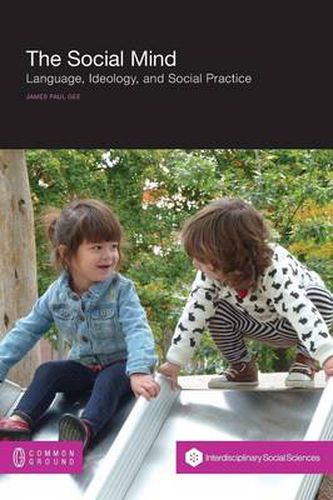Readings Newsletter
Become a Readings Member to make your shopping experience even easier.
Sign in or sign up for free!
You’re not far away from qualifying for FREE standard shipping within Australia
You’ve qualified for FREE standard shipping within Australia
The cart is loading…






This title is printed to order. This book may have been self-published. If so, we cannot guarantee the quality of the content. In the main most books will have gone through the editing process however some may not. We therefore suggest that you be aware of this before ordering this book. If in doubt check either the author or publisher’s details as we are unable to accept any returns unless they are faulty. Please contact us if you have any questions.
Stepping beyond cognitive science’s new theory of connectionism, Gee formulates a dynamic social theory of mind and meaning. With penetrating analyses, he illustrates how such psychological entities as memories, beliefs, values, and meanings are not formed in isolation but in a social or cultural context that is inherently ideological or political. As he moves toward his conclusion showing what socio-culturally situated linguistics would look like and points to some of the implications for human development, education, and society inherent in this view of linguistics, Gee persuasively demonstrates how people often construct self-deceptive stories that advantage themselves or their group.
In the first half of the book, Gee lays the groundwork for the overall theory of language, mind, and society that is developed in the two concluding chapters. He develops a concept of meaning as being rooted in cultural models, introduces a connectionist view of the mind/brain, and argues that memory is a social phenomenon. Then Gee sketches together a theory of mind and society and the nature of socio-cultural-based psychology. He explicitly displays how language fits within social practices and exemplifies claims about the political and ideological nature of social practices. This is a thought-provoking contribution for courses dealing with discourse, narrative, social linguistics, education, social theory, cognitive science, social cognition, and linguistics in anthropology.
$9.00 standard shipping within Australia
FREE standard shipping within Australia for orders over $100.00
Express & International shipping calculated at checkout
This title is printed to order. This book may have been self-published. If so, we cannot guarantee the quality of the content. In the main most books will have gone through the editing process however some may not. We therefore suggest that you be aware of this before ordering this book. If in doubt check either the author or publisher’s details as we are unable to accept any returns unless they are faulty. Please contact us if you have any questions.
Stepping beyond cognitive science’s new theory of connectionism, Gee formulates a dynamic social theory of mind and meaning. With penetrating analyses, he illustrates how such psychological entities as memories, beliefs, values, and meanings are not formed in isolation but in a social or cultural context that is inherently ideological or political. As he moves toward his conclusion showing what socio-culturally situated linguistics would look like and points to some of the implications for human development, education, and society inherent in this view of linguistics, Gee persuasively demonstrates how people often construct self-deceptive stories that advantage themselves or their group.
In the first half of the book, Gee lays the groundwork for the overall theory of language, mind, and society that is developed in the two concluding chapters. He develops a concept of meaning as being rooted in cultural models, introduces a connectionist view of the mind/brain, and argues that memory is a social phenomenon. Then Gee sketches together a theory of mind and society and the nature of socio-cultural-based psychology. He explicitly displays how language fits within social practices and exemplifies claims about the political and ideological nature of social practices. This is a thought-provoking contribution for courses dealing with discourse, narrative, social linguistics, education, social theory, cognitive science, social cognition, and linguistics in anthropology.